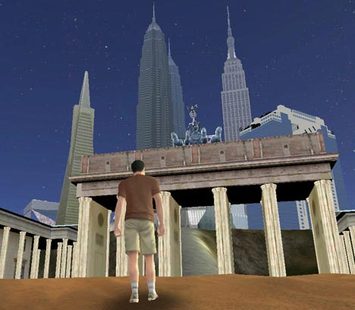~Aurelien Barrau, particle physicist at CERN

The Hollywood blockbuster, The Golden Compass, adapted from the first volume of Pullman's classic sci-fi trilogy, "His Dark Materials" portrays various universes as only one reality among many, but how realistic is this kind of classic sci-fi plot? While it hasn’t been proven yet, many highly respected and credible scientists are now saying there’s reason to believe that parallel dimensions could very well be more than figments of our imaginations.
"The idea of multiple universes is more than a fantastic invention—it appears naturally within several scientific theories, and deserves to be taken seriously," stated Aurelien Barrau, a French particle physicist at the European Organization for Nuclear Research (CERN).
There are a variety of competing theories based on the idea of parallel universes, but the most basic idea is that if the universe is infinite, then everything that could possibly occur has happened, is happening, or will happen.
According to quantum mechanics, nothing at the subatomic scale can really be said to exist until it is observed. Until then, particles occupy uncertain "superposition" states, in which they can have simultaneous "up" and "down" spins, or appear to be in different places at the same time. The mere act of observing somehow appears to "nail down" a particular state of reality. Scientists don’t yet have a perfect explanation for how it occurs, but that hasn’t changed the fact that the phenomenon does occur.
Unobserved particles are described by "wave functions" representing a set of multiple "probable" states. When an observer makes a measurement, the particle then settles down into one of these multiple options, which is somewhat how the multiple universe theory can be explained.
The existence of such a parallel universe "does not even assume speculative modern physics, merely that space is infinite and rather uniformly filled with matter as indicated by recent astronomical observations," Max Tegmark, a cosmologist at MIT in Boston, Massachusetts concluded in a study of parallel universes published by Cambridge University.
More/Source: http://snipurl.com/ihvvw



